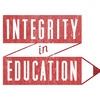Ask TIME’s competitors: Let’s talk about real education issues!
The chief editors of The Atlantic, The New Yorker, EBONY, Reader's Digest & Parents Magazine

Media matters in a democracy. In order for a society run by we the people to function fairly and effectively, we must have accurate, meaningful information on which to base important public policy decisions.
Yet our mass media routinely fails us in this regard. Media outlets often prioritize sensational, irrelevant and even false information over the factual information and analysis we need in order to be informed voters, consumers, and community members.
Furthermore, media outlets often distort our perceptions of the important issues they do cover by making bad decisions about who gets to speak on those issues. Who gets ink and airtime determines what issues we pay attention to and which actions we take. So when the wrong people are given that ink and that airtime, the general public ends up paying attention to the wrong issues, and taking the wrong actions.
This has been a problem for economic policy, environmental policy, and myriad others. And sadly, public education is no different. Education doesn’t get nearly the media attention it truly deserves, but when it is covered, it’s often the people with the least knowledge and experience of public schools, and those who are least representative of the groups most affected by education policy, who are doing most of the talking.
Students’ lives are shaped by the educational experiences they have on a daily basis, yet they’re rarely taken seriously-- or even allowed to represent themselves-- in education policy discussions. And though the majority of public school students are now people of color, the overwhelming majority of people given the opportunity to address the public on educational issues are white.
Working- and middle-class communities depend on public schools both as sites of education as well as sites of employment and economic opportunity. Yet as we just saw with TIME magazine, many mass media outlets focus on the opinions of wealthy people who don’t attend, work in, or send their children to public schools to shape the discussion about public education issues.
And while the teaching profession is nearly 80% women, media outlets frequently give men from totally unrelated, majority-male domains like the tech and finance industries space to advance their ideas on education policy, no matter how misinformed or even dangerous their ideas are.
So while the same few people on both “sides” of the education debate go back and forth on the same tired issues, much bigger educational questions are going completely unasked, let alone answered. How can we change funding structures and tax policies to ensure that all students get the resources they need? How can we make sure that the teaching profession reflects the student population it serves, and finally ensure that all teachers are culturally competent enough to respectfully and effectively teach students of different races, genders, orientations and social classes? How can we make sure our schools strengthen our democracy, and contribute to a more just and sustainable world?
These are just a sampling of the kinds of big questions the public won’t get to consider so long as misinformation about issues like due process remains the primary focus of mainstream education coverage. As TIME deals with the backlash against their offensive cover, let’s take this opportunity to insist on a better public conversation about education.
Please join us in asking the editors of five of America’s most influential and widely-read magazines to devote at least one issue to giving us—members of diverse public school communities—time to discuss some of these bigger questions.
Sign on to send a message to the editors of the following magazines:
The Atlantic
The New Yorker
Ebony
Readers’ Digest
Parents Magazine
To:
The chief editors of The Atlantic, The New Yorker, EBONY, Reader's Digest & Parents Magazine
From:
[Your Name]
When it comes to public education, there is much more to discuss than the same tired misconceptions about teachers and public schools. Please dedicate at least one upcoming issue of your magazine to letting a diverse group of public school students, teachers and families discuss some of the educational ideas and challenges that don’t get the media attention they deserve!

